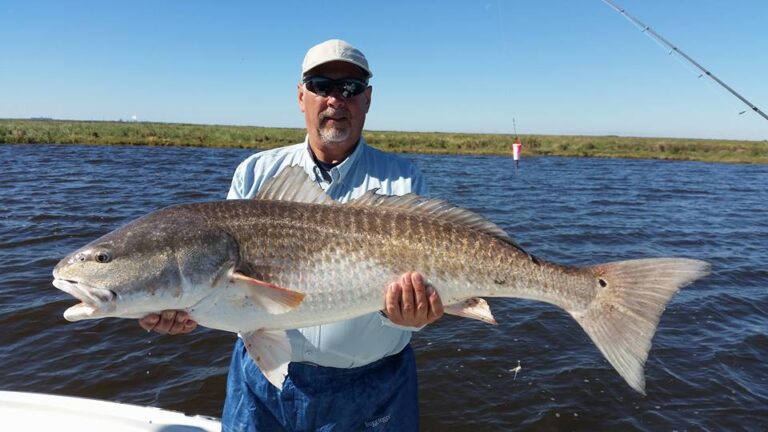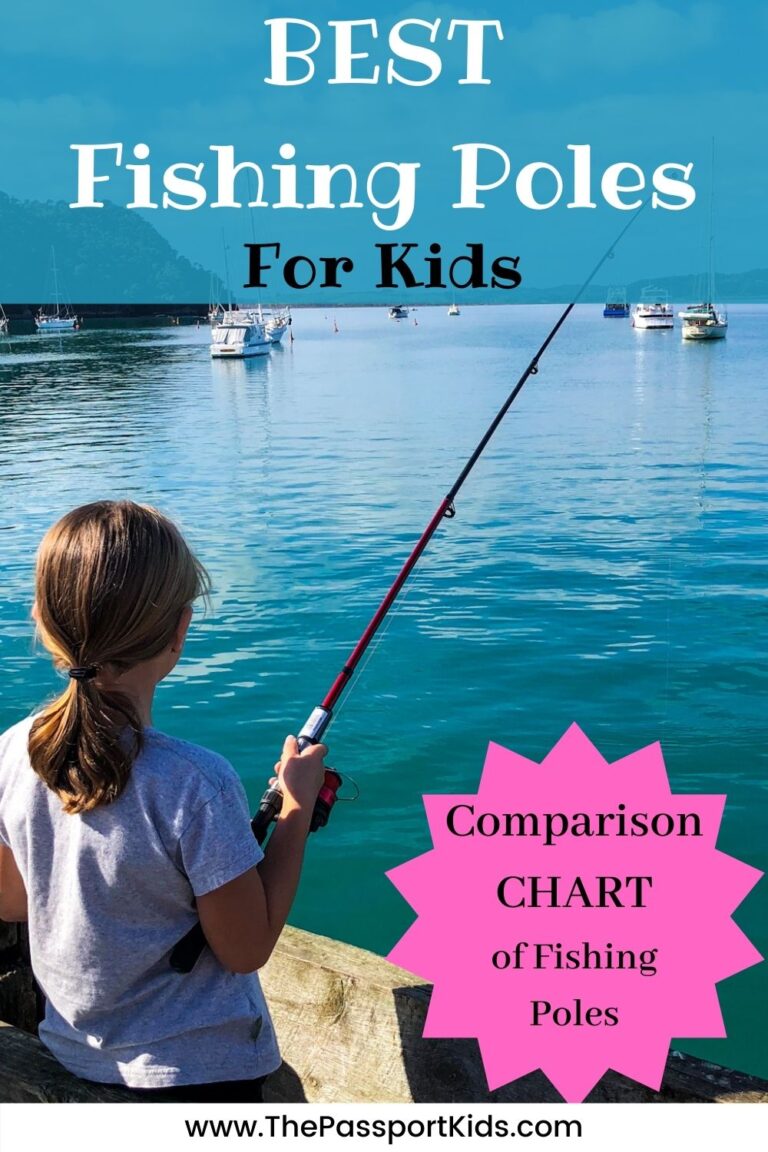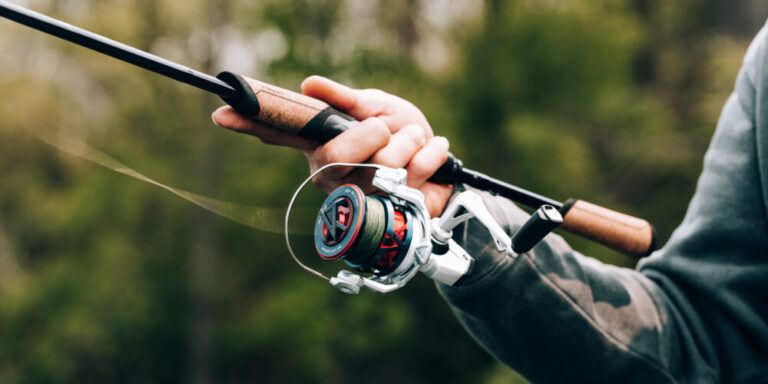Yes, a fishing license is required for magnet fishing. Magnet fishing, a popular hobby where magnets are used to search bodies of water for metallic objects, requires a fishing license.
This license ensures that individuals engaging in this activity are following local fishing regulations and guidelines. While not all states explicitly address magnet fishing in their fishing regulations, it is important to check with local authorities to determine whether a fishing license is necessary for this hobby.
Additionally, obtaining a fishing license helps support fish and wildlife conservation efforts, allowing for the maintenance and preservation of aquatic ecosystems for future generations to enjoy. So, if you’re planning to try your hand at magnet fishing, be sure to obtain the appropriate fishing license to enjoy this pastime legally and responsibly.

Credit: www.bbc.com
Understanding The Basics Of Magnet Fishing
What Is Magnet Fishing?
Magnet fishing is an increasingly popular outdoor activity that involves using a strong magnet attached to a rope or line to search for metal objects submerged in bodies of water. It is often compared to a aquatic version of metal detecting.
While some people engage in magnet fishing for the thrill of the unexpected, others enjoy the environmental benefits it offers. Here are the key points to understand about magnet fishing:
- Magnet fishing is a recreational pastime that combines the excitement of treasure hunting with the allure of being outdoors.
- The concept is simple: A powerful magnet is dropped into a body of water and pulled back with a rope or line, attracting any metal objects along the way.
- The goal is to find hidden treasures, such as coins, old tools, railings, or even historical artifacts lurking beneath the water’s surface.
- Just like regular fishing, magnet fishing requires patience and a keen eye to spot potential hotspots where objects may be accumulated.
How Does Magnet Fishing Work?
The process of magnet fishing is straightforward but can yield exciting results. Here’s a breakdown of how it works:
- Choose the right magnet: Select a strong neodymium magnet, often referred to as a “fishing magnet.” These magnets have a high magnetic pull force and are suitable for retrieving submerged objects.
- Attach a rope or line: Securely fasten a strong rope or nylon line to the magnet. The rope should be long enough to reach the bottom of the body of water you plan to explore.
- Find a suitable location: Look for areas that may contain metal objects, such as lakes, rivers, canals, or even docks and bridges. Historical sites or areas near old factories and bridges can be promising.
- Drop and retrieve: Lower the magnet into the water, allowing it to sink to the bottom. Once it touches the surface, slowly drag it along the bottom, maintaining tension on the rope. As you retrieve the magnet, it may attach to any metal objects it comes into contact with.
- Remove and sort: Carefully remove any objects that the magnet has attracted. Clean them if necessary and sort them into categories such as coins, nails, or other interesting finds.
Why Is Magnet Fishing Gaining Popularity?
Magnet fishing has been increasing in popularity for several reasons. Here’s why it has captured the interest of so many enthusiasts:
- Sense of adventure: Magnet fishing offers an element of thrill and excitement as each throw of the magnet presents the possibility of uncovering something unique or valuable.
- Accessibility: Unlike many hobbies, magnet fishing requires minimal investment and can be enjoyed by people of all ages and fitness levels. All you need is a magnet, rope, and a body of water, making it easily accessible to many.
- Eco-friendly activity: Magnet fishing provides an opportunity to clean up the environment by removing potentially harmful metal debris from bodies of water. It contributes to the preservation of aquatic ecosystems and improves the overall aesthetics of natural areas.
- Historical discovery: Many enthusiasts are drawn to magnet fishing due to the potential for uncovering historical artifacts or objects that offer insight into the past. It allows us to connect with history in a tangible way.
Safety Considerations For Magnet Fishing
While magnet fishing is an exciting and rewarding activity, it’s important to prioritize safety. Here are some key safety considerations to keep in mind:
- Always wear gloves: To protect your hands from sharp objects and potential contaminants, wear sturdy gloves while magnet fishing.
- Be aware of the environment: Take note of your surroundings and avoid areas with strong currents or hidden dangers. Stay away from hydroelectric power stations, locks, and dams.
- Dispose of debris responsibly: If you come across any trash or hazardous materials during your magnet fishing expedition, dispose of them appropriately and in accordance with local regulations.
- Respect private property: Obtain permission from landowners before magnet fishing on private property. Always follow any rules or guidelines provided by the property owner or local authorities.
- Stay alert: Be mindful of your footing and watch out for potential hazards such as slippery rocks or uneven terrain when exploring the water’s edge.
By adhering to these safety precautions, you can ensure an enjoyable and secure magnet fishing experience. So grab your equipment, find a suitable location, and embark on a thrilling adventure beneath the water’s surface!
Legalities And Regulations Of Magnet Fishing
Differentiating Between Recreational Fishing And Magnet Fishing
Magnet fishing is a unique activity that has gained popularity in recent years. It involves using a strong magnet to retrieve objects from bodies of water, such as rivers, lakes, and canals. While it shares similarities with recreational fishing, there are some key differences to consider.
- Recreational fishing: This traditional form of fishing involves using fishing rods, lines, hooks, and bait to catch fish. It is typically done for sport or as a leisure activity, with the main goal being to catch fish and release them back into the water.
- Magnet fishing: On the other hand, magnet fishing focuses on retrieving different objects from the water, including metal items such as coins, tools, jewelry, or even historical artifacts. The primary goal is not to catch fish but to discover hidden treasures beneath the water’s surface.
Is A Fishing License Required For Magnet Fishing?
To engage in recreational fishing, many states and countries require individuals to possess a valid fishing license. However, when it comes to magnet fishing, the need for a license can vary depending on local laws and regulations. Before heading out for a magnet fishing adventure, it is crucial to understand the specific requirements of your area.
Exploring Local Laws And Regulations
Magnet fishing enthusiasts need to familiarize themselves with the local laws and regulations governing this activity. Here are a few important points to consider:
- Contact local authorities: Reach out to your local municipality or environmental agency to inquire about any specific guidelines or permits required for magnet fishing.
- Water body restrictions: Some bodies of water have restrictions on magnet fishing due to environmental concerns or the presence of protected areas. It is essential to identify locations where magnet fishing is permitted and adhere to any guidelines set forth by authorities.
- Trespassing concerns: Always seek permission from the owner before magnet fishing in private waters. Trespassing laws apply even if the activity does not involve catching fish.
Understanding The Legality Of Magnet Fishing In Different Countries
Magnet fishing regulations can vary significantly from one country to another. It is crucial to research and understand the laws specific to the region where you intend to engage in this activity. Here are some examples:
- United states: In the us, magnet fishing laws differ from state to state. Some states require a fishing license, while others may not have specific regulations in place. It is important to consult local fishing authorities or the department of natural resources for accurate information.
- United kingdom: Magnet fishing is legal in the uk, but it is essential to obtain permission if magnet fishing in private waters. Additionally, certain areas, such as historical sites or areas of ecological importance, may have restrictions.
Potential Penalties For Magnet Fishing Without A License
Magnet fishing without the necessary permits or licenses can result in various penalties, depending on the jurisdiction. Here are a few examples:
- Fines: Offenders may face fines ranging from small amounts to substantial penalties, depending on the severity of the violation.
- Confiscation: Authorities may confiscate magnet fishing equipment and any retrieved objects if the activity is deemed illegal or conducted without the required permits.
To ensure a trouble-free magnet fishing experience, it is vital to research and comply with all relevant laws and regulations. Always obtain any necessary permits or licenses before embarking on your magnet fishing adventure.
How To Obtain A Fishing License For Magnet Fishing
Researching Fishing License Requirements
Before you head out for some exciting magnet fishing adventures, it’s important to understand the fishing license requirements in your area. Here are the key points to consider:
- Research the fishing license regulations specific to your location. Check with your local fishing and wildlife agency or department to find out the rules and regulations regarding fishing licenses for magnet fishing.
- Determine if a fishing license is required. Some regions may exempt magnet fishing from needing a license, considering it a recreational activity rather than traditional fishing. However, other areas may classify it as fishing and require a license. It’s essential to know the local laws to avoid any legal issues.
- Understand the age restrictions. Fishing license requirements often vary based on age. Some areas may require all individuals, regardless of age, to have a license, while others may exempt children under a certain age or have reduced rates for minors.
Applying For A Fishing License
Now that you’ve done your research and confirmed that a fishing license is necessary, it’s time to apply. Here’s what you need to know:
- Determine the application process. Each jurisdiction may have its own specific steps for obtaining a fishing license. Visit the website of your local fish and wildlife agency to find the necessary information and forms.
- Provide personal information. When applying for a fishing license, you’ll typically need to provide details such as your full name, address, contact information, and sometimes your social security number. This information helps the authorities keep track of licensed anglers.
- Choose the correct license type. Fishing licenses can vary based on factors such as your age, residency status, and duration of the license. Make sure to select the appropriate license type for your specific circumstances.
Cost Of Obtaining A Fishing License
While the cost of a fishing license for magnet fishing may not break the bank, it’s still essential to consider the expenses involved. Here’s what you should keep in mind:
- Determine the cost. Fishing license fees can vary widely depending on your location and the type of license you need. Costs can range from a few dollars for short-term licenses to higher amounts for annual or non-resident licenses. Check the official website of your local fish and wildlife agency for accurate pricing information.
- Consider additional fees. In some cases, additional fees such as application processing or transaction fees may apply. These costs should also be taken into account when budgeting for your fishing license.
Documenting And Maintaining Your Fishing License
Once you’ve obtained your fishing license, it’s crucial to keep it in good standing. Here are some tips for documenting and maintaining your license:
- Carry your license while fishing. It’s a legal requirement in most areas to have your fishing license on hand whenever you engage in the activity. Keep it in a waterproof container or a plastic bag to protect it from damage.
- Take photos or make copies. To avoid losing or damaging your original license, take clear photos of it or make additional copies. This practice ensures that you have backup documentation if the original is misplaced.
- Follow state-specific guidelines. Some regions have additional regulations regarding how to display or document your license while fishing. Refer to your local fish and wildlife agency’s guidelines to ensure compliance.
Renewing Your Fishing License Periodically
Fishing licenses typically come with an expiration date, so it’s essential to renew them to remain compliant with local regulations. Here’s what you should know about renewing your license:
- Note the renewal period. Fishing license durations can vary, with options ranging from one day to one year. Keep track of the expiration date to know when you need to renew your license.
- Renew in a timely manner. It’s best to renew your fishing license a few weeks before it expires to avoid any disruptions in your magnet fishing adventures. Renewal processes can differ, so refer to your local fish and wildlife agency’s guidelines for the renewal procedure.
- Consider automatic renewal options. Some jurisdictions offer the convenience of automatically renewing your fishing license each year. Check if this option is available in your area to simplify the process.
Now armed with knowledge about fishing license requirements, applying for a license, understanding the costs involved, documenting and maintaining it properly, and renewing it periodically, you can confidently enjoy your magnet fishing endeavors while staying within legal boundaries. Happy magnet fishing!
Conclusion
It is important to remember that when engaging in magnet fishing, a fishing license may be required depending on your location and the regulations set forth by local authorities. Obtaining a fishing license not only ensures that you are operating within the law, but it also supports conservation efforts and helps to maintain the overall health of the fishing ecosystem.
By obtaining a license, you are also contributing to the management and preservation of aquatic resources, which benefits both recreational and commercial anglers alike. It is always wise to check with your local fish and game department or wildlife agency to familiarize yourself with the specific rules and requirements in your area.
So, before heading out with your magnet and rope, take the time to research and comply with any licensing requirements, and enjoy the exciting and rewarding experience of magnet fishing while respecting the environment and following the law.






